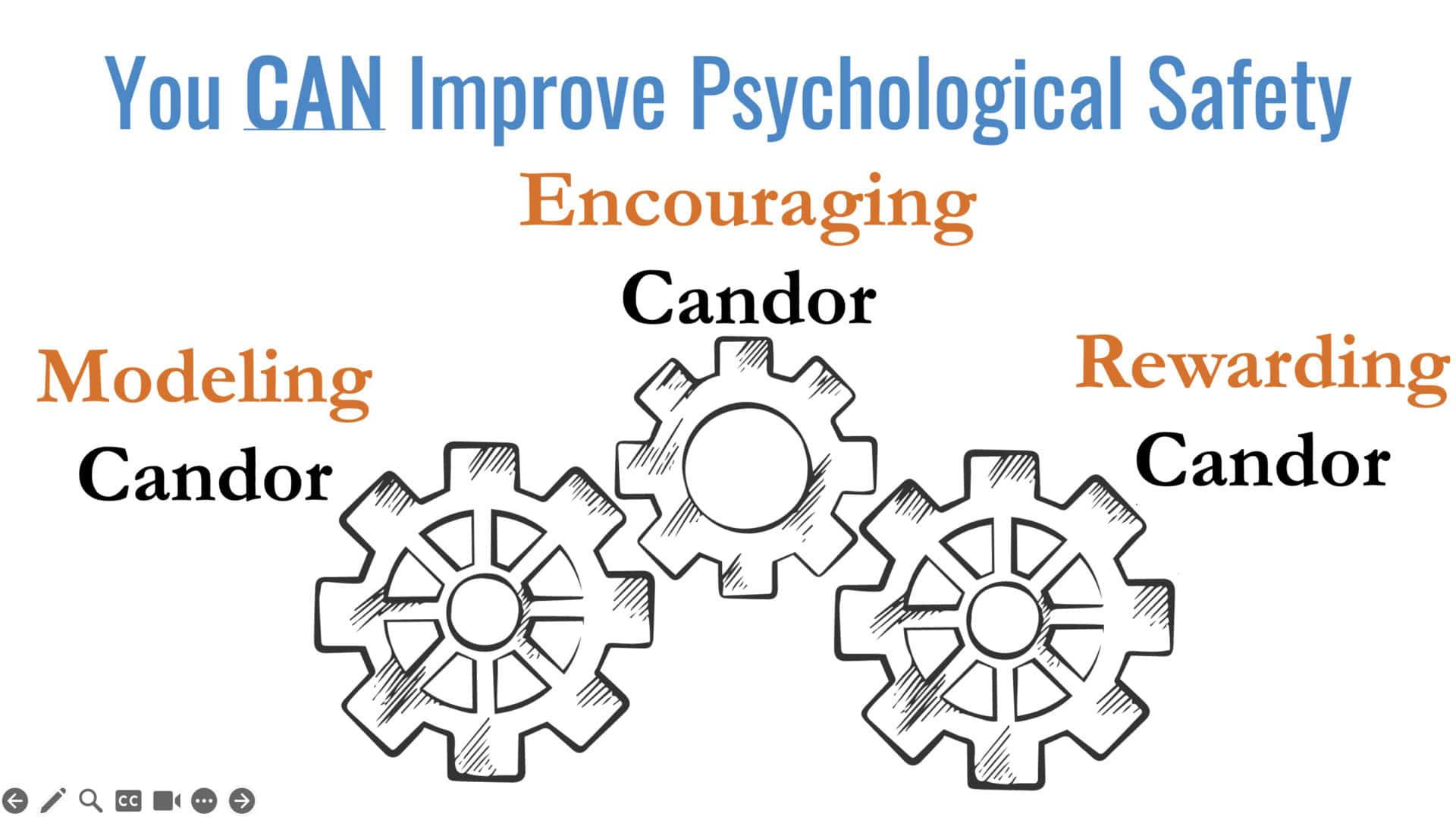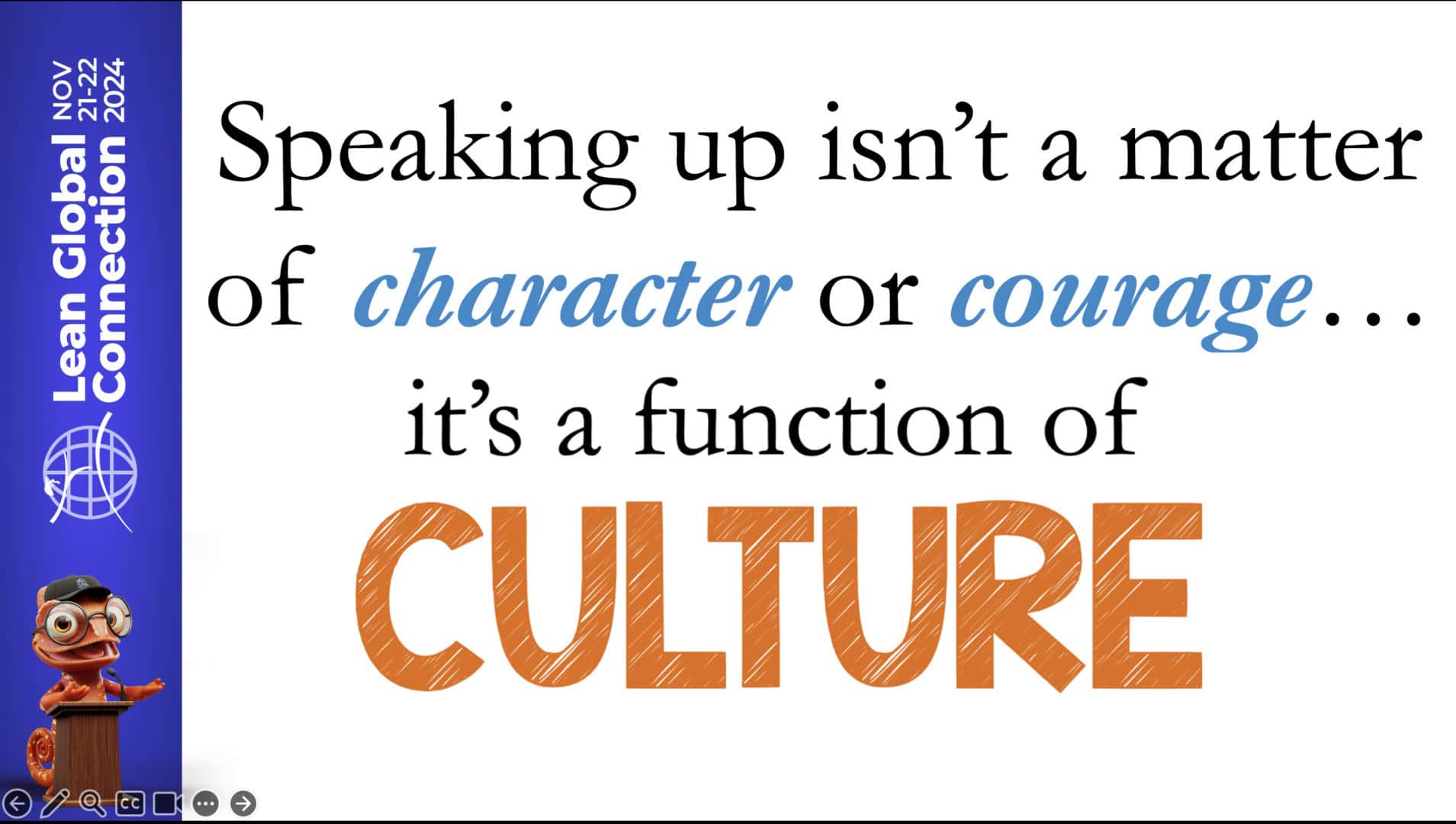At yesterday's Lean Global Connection event, I posed a straightforward yet revealing question to the audience:
“What keeps you from speaking up at work?”
The responses illustrated two of the common barriers. I posed the survey options based on the research of Prof. Ethan Burris, from the University of Texas at Austin, who has found that fear and futility are the top two reasons why people choose to stay quiet.
For some, fear stood in the way–the fear of reprisal, being judged, or being seen as a troublemaker.
For others, the obstacle wasn't fear but futility–the belief that speaking up wouldn't make a difference. Four people, sadly, said BOTH were barriers.
And yet, amidst these challenges, eight people shared that they felt no barriers at all, a testament to the environments they work in. That is the ideal we should all strive for.
The survey results line up with the Burris research that shows futility is actually the biggest reason, not fear.

Why People Don't Speak Up: Fear and Futility
In many organizations, fear casts a long shadow. Employees hesitate to point out issues or suggest improvements, being worried about being punished or ridiculed. This phenomenon, often described as the “fear factor,” stifles innovation and prevents organizations from addressing problems proactively.
The “futility factor,” on the other hand, is more insidious. Here, employees feel safe to voice concerns but see little point in doing so because past attempts at speaking up have gone nowhere. Over time, a culture of learned helplessness develops, and disengagement grows.
“I'm not afraid to speak up… it just isn't worth the effort!”
The Remedy: Psychological Safety and Problem-Solving
To overcome these barriers, two conditions are essential:
- Psychological Safety
Popularized as a concept by Harvard professor Amy Edmondson, psychological safety is the shared belief that one can take interpersonal risks–such as admitting mistakes, raising concerns, or suggesting ideas–without fear of negative consequences. It is foundational for high-performing teams and organizations. - Effective Problem-Solving Processes
For people to see value in speaking up, their input must lead to meaningful action. Implementing structured approaches like Kaizen or other problem-solving frameworks ensures that employees' voices translate into real, visible improvements.
When these two elements are in place, workplaces can transform. Employees not only feel safe but also know their contributions are valued and impactful.
How do leaders cultivate a feeling of Psychological Safety?
Through three key actions:
- Modeling candor (or vulnerability)
- Encouraging employees to follow your lead
- Rewarding people for speaking up

Leadership Shapes Culture
Culture doesn't happen by accident; it is a reflection of leadership–their mindsets, beliefs, and actions.

Leaders play a pivotal role in creating an environment where people feel safe to speak up and are confident their voices will lead to change. This starts with modeling vulnerability, listening without judgment, and demonstrating that feedback leads to action.
Building the Foundation for Continuous Improvement
Psychological Safety and robust problem-solving are the bedrock of Lean management and continuous improvement. When employees feel like it's safe and effective to do so, they are more likely to share insights that lead to better quality, safety, and efficiency. Organizations that achieve this culture don't just solve problems; they innovate and thrive.
Let's work together to build these foundations in your organization. By addressing fear and futility, you can engage everyone in the pursuit of excellence. If you'd like to explore strategies for enhancing Psychological Safety or improving problem-solving processes, let's connect. Together, we can create workplaces where everyone feels heard, valued, and inspired to contribute.
How do these barriers show up in your workplace? What has worked well for you in fostering a more open culture? Share your thoughts–I'd love to hear them.
Survey Responses from Another Event
Here are some results from attendees at a company's global continuous improvement leadership event:

It seems like the “fear factor” is more prominent in this company. I think it's important to know your starting point.
Do you need to cultivate Psychological Safety? Or work on your problem-solving and management system?
What do you think? Please scroll down (or click) to post a comment. Or please share the post with your thoughts on LinkedIn – and follow me or connect with me there.
Did you like this post? Make sure you don't miss a post or podcast — Subscribe to get notified about posts via email daily or weekly.
Check out my latest book, The Mistakes That Make Us: Cultivating a Culture of Learning and Innovation:









